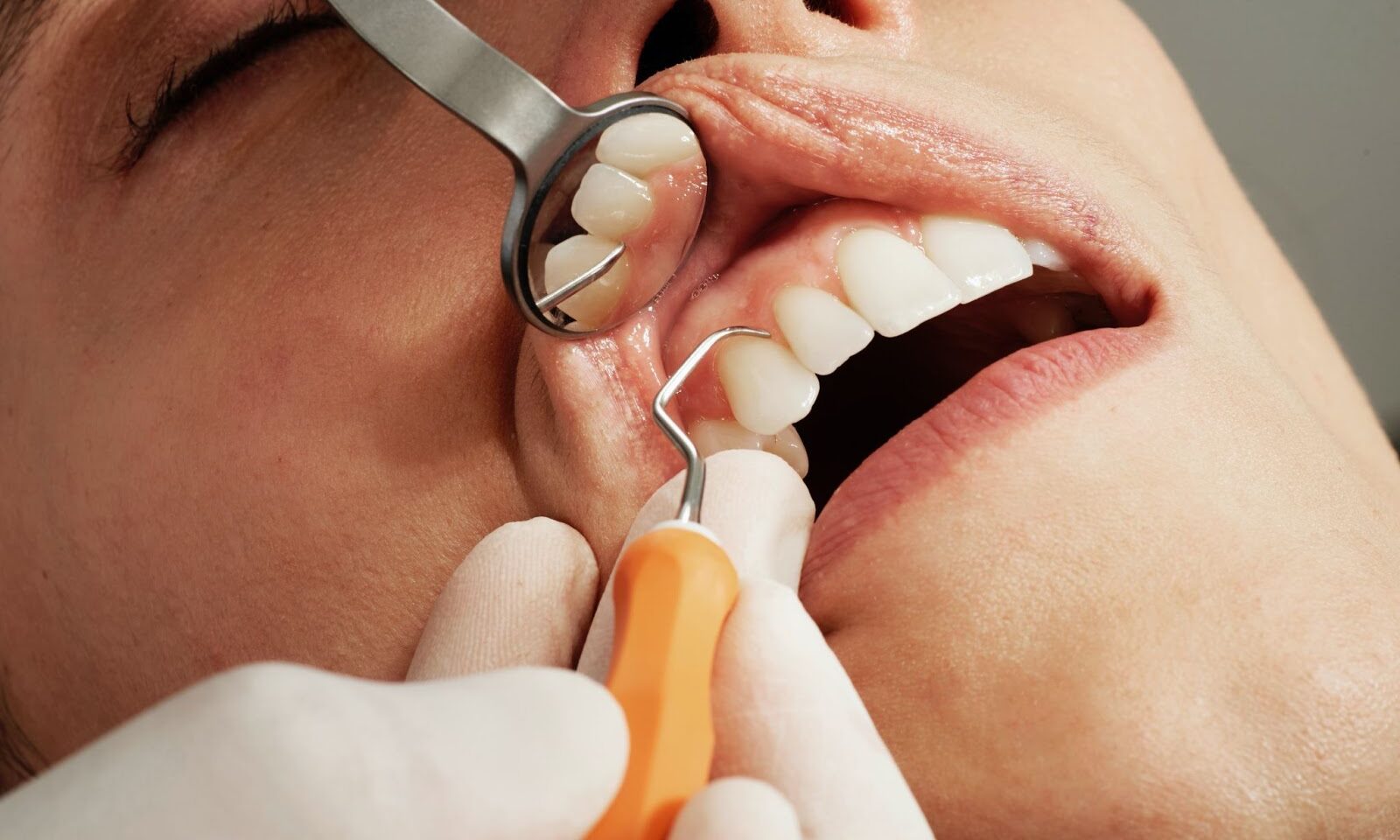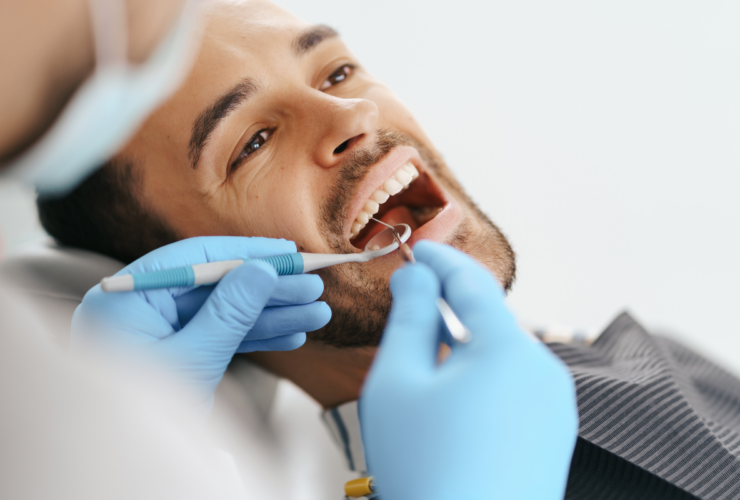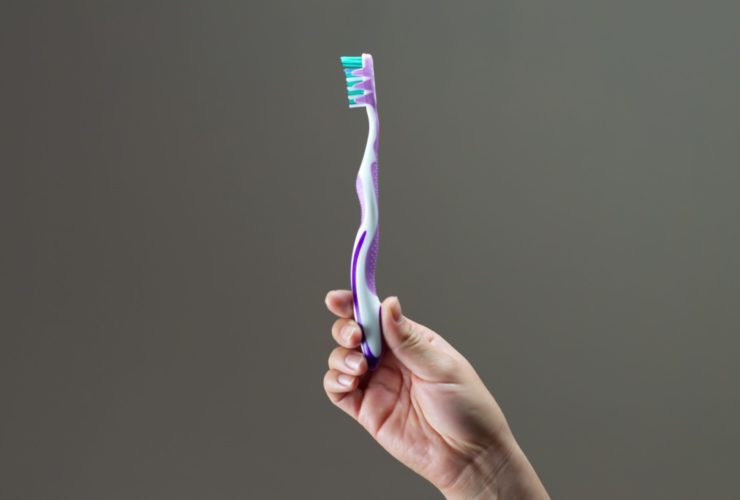The Causes and Cures of Bleeding Gums
If you are suffering from bleeding gums, this is usually a symptom that commonly occurs due to gum disease. Although, if you brush your teeth strenuously or have dentures that are not fitting your mouth correctly, this can cause bleeding gums too.
These symptoms can be looked at and taken care of by your dentist and it is important to get your gums checked out sooner rather than later, before it progresses to periodontitis.
What Can Happen If I Have Bleeding Gums?
Bleeding gums are a common symptom if your teeth are not being looked after properly. They can become inflamed which is known as gingivitis and if not treated, can lead to periodontitis which will result in sensitive gums and more bleeding.
Without proper oral hygiene and regular dental check ups, plaque can linger on your gum line for a long period of time. This can result in gingivitis, as if it is not removed it can turn into tartar, resulting in more bleeding. To minimise this, brush your teeth twice a day (with fluoride or anti-gingivitis toothpaste) gently with a soft toothbrush and don’t rinse after brushing your teeth as this washes away the fluoride. Flossing daily can also avoid further buildup of plaque, bacteria and food particles remaining in your mouth. Be aware that if you start flossing and are new to it, you may experience some bleeding from your gums. Furthermore, if you have gingivitis you can experience other symptoms aside from bleeding gums such as puffy gums, pain throughout the mouth and gums and receding gums. Other symptoms include bad breath, bad taste and a change in your bite whilst eating due to teeth not fitting together properly. If you suffer from dry mouth, there are some mouthwashes that can help with this, or if you are taking medication like antihistamines, decongestants and so on, speak to your doctor who can recommend a different medication.
If gingivitis progresses to periodontitis, this can lead to an infection in the gums, jawbone as well as the tissues that surround the teeth and gums which can result in loose teeth that fall out. Vitamin deficiencies can also result in bleeding gums, mainly vitamin C and vitamin K. It is important to speak to your doctor to examine how much you are getting, if it’s too low consider your diet and including more of the following foods and drinking plenty of water:
- Vegetables such as bell peppers, potatoes and broccoli. These can help with vitamin C deficiencies.
- Fruits such as strawberries, tomatoes and citrus fruits (but avoid eating too much!), including juices. These can help with vitamin C deficiencies.
- Greens such as watercress, kale, spinach, lettuce, swiss chard as well as soybeans, canola oil and olive oil. These can help with low vitamin K levels.
What Are Some Other Causes Of Bleeding Gums?
Aside from poor dental hygiene and vitamin deficiencies, dentures can occasionally result in bleeding gums if they are too tight. If you are experiencing this issue with dentures or other implants, contact your dentist for new impressions and dentures that fit better. If you are pregnant, you can also experience bleeding gums due to sensitivity and changing hormones. More serious conditions can be a result of bleeding gums, such as hemophilia and leukemia especially if you are given blood-thinning medication like paracetamol and ibuprofen. Bleeding and puffy gums can be an indication of type 1 and type 2 of diabetes, as high blood sugar levels can prolong the time it takes to heal.
How Can Bleeding Gums Be Treated?
If you’re suffering from bleeding gums, book an appointment with your dentist to diagnose the cause or whether it’s a form of gum disease. They may also recommend an antiseptic mouthwash to reduce plaque along your gum line and avoid periodontal disease. Salt water is also helpful to reduce gums that are swollen and are sensitive to bleeding.
The following treatment is also recommended:
- Methods to improve your dental hygiene, your dentist may show you how to brush and floss your teeth properly.
- Daily mouthwash rinses can prevent plaque between your teeth as well as dental picks and interdental cleaners are helpful for food or plaque that is difficult to remove.
- Your dentist may recommend ‘scaling and root planing’ treatment, which is a deep cleaning treatment to remove tartar and plaque from the exterior of your teeth as well as the roots.
To avoid or help bleeding gums, it is important to maintain a healthy diet and avoid smoking and drinking regularly. Whole grains, fruits, vegetables, lean protein, dairy, fibre and chewing gum are all recommended to maintain good oral health. Moreover, consider including foods in your diet with fluoride, which is also beneficial to your dental health, black tea, seafood, wine, coffee, raisins and powdered cereals can help bleeding gums. Sugary drinks and starchy foods with carbohydrates also contribute to bleeding gums, so make sure to drink water regularly. Finally, regular checkups with your dentist, who may recommend at least twice a year, can also help with maintaining your gums and preventing them from bleeding leading to further issues. Your dentist may also be able to spot symptoms of gum disease a lot quicker and advise you on how to prevent or cure it.
Prevent Bleeding Gums at Hermes London Dental Clinic
To prevent or cure your bleeding gums, visit your dentist to receive guidance on the causes and cures as well as the right treatment for you.
If you are suffering from any of the above issues, we will most likely request to see you more frequently. Once we are happy with the results, we will advise you on whether we would like to see you every six or 12 months. We offer emergency dental services as well, find out more here.
If you’d like to find out more about our dental treatments or if you have questions regarding problems with bleeding gums, we would be more than happy to offer you advice.




